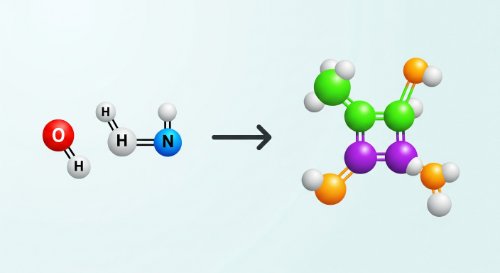Precision and accuracy - Principles of Measurement | Introduction to Chemistry (Undergraduate Foundation)
SPONSORED Get Personalized Tutoring NowStruggling with a tough concept or looking to advance your skills? Our expert tutors offer one-to-one guidance tailored to your unique needs.
Get instant support, clear explanations, and practical strategies to master even the most challenging subjects. With flexible scheduling and customized learning plans, success is just a session away.
Book your personalized tutoring today and start achieving your academic goals!
Get Personalized Tutoring NowStruggling with a tough concept or looking to advance your skills? Our expert tutors offer one-to-one guidance tailored to your unique needs.
Get instant support, clear explanations, and practical strategies to master even the most challenging subjects. With flexible scheduling and customized learning plans, success is just a session away.
Book your personalized tutoring today and start achieving your academic goals!
Struggling with a tough concept or looking to advance your skills? Our expert tutors offer one-to-one guidance tailored to your unique needs. Get instant support, clear explanations, and practical strategies to master even the most challenging subjects. With flexible scheduling and customized learning plans, success is just a session away. Book your personalized tutoring today and start achieving your academic goals!
 Introduction to Chemistry (Undergraduate Foundation)This course covers the fundamental principles of chemistry. It begins with the scientific method, precision in measurement, significant figures, and the classification of matter. The material then moves to the core concepts of elements and compounds, and provides an introduction to the different types of chemical reactions.
A command of these foundational topics is non-negotiable for any scientific study. The principles of measurement and precision are the basis of all experimental science. Understanding the nature of matter and the classification of reactions is the essential vocabulary required to describe the chemical world. This is the starting point for all subsequent study in chemistry.
By the end of this course, you will be able to perform calculations with the correct number of significant figures, identify the different states of matter, and classify various types of chemical reactions. You will also be able to apply the scientific method to solve problems and understand the importance of precision in quantitative measurements.
This course is for students beginning their study of chemistry at the university foundation level. It is a mandatory prerequisite for any student intending to pursue a degree in chemistry, chemical engineering, medicine, or any of the biological sciences.
Introduction to Chemistry (Undergraduate Foundation)This course covers the fundamental principles of chemistry. It begins with the scientific method, precision in measurement, significant figures, and the classification of matter. The material then moves to the core concepts of elements and compounds, and provides an introduction to the different types of chemical reactions.
A command of these foundational topics is non-negotiable for any scientific study. The principles of measurement and precision are the basis of all experimental science. Understanding the nature of matter and the classification of reactions is the essential vocabulary required to describe the chemical world. This is the starting point for all subsequent study in chemistry.
By the end of this course, you will be able to perform calculations with the correct number of significant figures, identify the different states of matter, and classify various types of chemical reactions. You will also be able to apply the scientific method to solve problems and understand the importance of precision in quantitative measurements.
This course is for students beginning their study of chemistry at the university foundation level. It is a mandatory prerequisite for any student intending to pursue a degree in chemistry, chemical engineering, medicine, or any of the biological sciences.
This course covers the fundamental principles of chemistry. It begins with the scientific method, precision in measurement, significant figures, and the classification of matter. The material then moves to the core concepts of elements and compounds, and provides an introduction to the different types of chemical reactions. A command of these foundational topics is non-negotiable for any scientific study. The principles of measurement and precision are the basis of all experimental science. Understanding the nature of matter and the classification of reactions is the essential vocabulary required to describe the chemical world. This is the starting point for all subsequent study in chemistry. By the end of this course, you will be able to perform calculations with the correct number of significant figures, identify the different states of matter, and classify various types of chemical reactions. You will also be able to apply the scientific method to solve problems and understand the importance of precision in quantitative measurements. This course is for students beginning their study of chemistry at the university foundation level. It is a mandatory prerequisite for any student intending to pursue a degree in chemistry, chemical engineering, medicine, or any of the biological sciences.
![[NUC Core] CHM 101: General Chemistry I](https://media.unidrills.com/avatars/learningTrack/bZpzeLvaF8T3mv5MFnpf.JPEG) [NUC Core] CHM 101: General Chemistry IThis learning track delivers the complete NUC CCMAS curriculum for General Chemistry I. It is a comprehensive programme designed to build a robust, university-level foundation in modern chemistry. The track systematically covers all essential topics, from atomic theory, chemical bonding, and the states of matter, to the quantitative principles of stoichiometry, equilibrium, thermodynamics, and kinetics.
This programme is for first-year undergraduates in science, technology, engineering, and mathematics (STEM) faculties who are required to take CHM 101. It is also essential for any student or professional globally who needs a rigorous and complete foundation in first-year university chemistry for further study or career development.
This track delivers a full skill set in chemical theory and quantitative problem-solving. Graduates will be able to determine molecular structures, calculate reaction quantities, analyse the energetics and rates of reactions, and solve complex equilibrium problems. This programme provides the non-negotiable prerequisite knowledge for all subsequent chemistry courses and for any degree in the physical sciences, engineering, or medicine.
[NUC Core] CHM 101: General Chemistry IThis learning track delivers the complete NUC CCMAS curriculum for General Chemistry I. It is a comprehensive programme designed to build a robust, university-level foundation in modern chemistry. The track systematically covers all essential topics, from atomic theory, chemical bonding, and the states of matter, to the quantitative principles of stoichiometry, equilibrium, thermodynamics, and kinetics.
This programme is for first-year undergraduates in science, technology, engineering, and mathematics (STEM) faculties who are required to take CHM 101. It is also essential for any student or professional globally who needs a rigorous and complete foundation in first-year university chemistry for further study or career development.
This track delivers a full skill set in chemical theory and quantitative problem-solving. Graduates will be able to determine molecular structures, calculate reaction quantities, analyse the energetics and rates of reactions, and solve complex equilibrium problems. This programme provides the non-negotiable prerequisite knowledge for all subsequent chemistry courses and for any degree in the physical sciences, engineering, or medicine.
This learning track delivers the complete NUC CCMAS curriculum for General Chemistry I. It is a comprehensive programme designed to build a robust, university-level foundation in modern chemistry. The track systematically covers all essential topics, from atomic theory, chemical bonding, and the states of matter, to the quantitative principles of stoichiometry, equilibrium, thermodynamics, and kinetics. This programme is for first-year undergraduates in science, technology, engineering, and mathematics (STEM) faculties who are required to take CHM 101. It is also essential for any student or professional globally who needs a rigorous and complete foundation in first-year university chemistry for further study or career development. This track delivers a full skill set in chemical theory and quantitative problem-solving. Graduates will be able to determine molecular structures, calculate reaction quantities, analyse the energetics and rates of reactions, and solve complex equilibrium problems. This programme provides the non-negotiable prerequisite knowledge for all subsequent chemistry courses and for any degree in the physical sciences, engineering, or medicine.